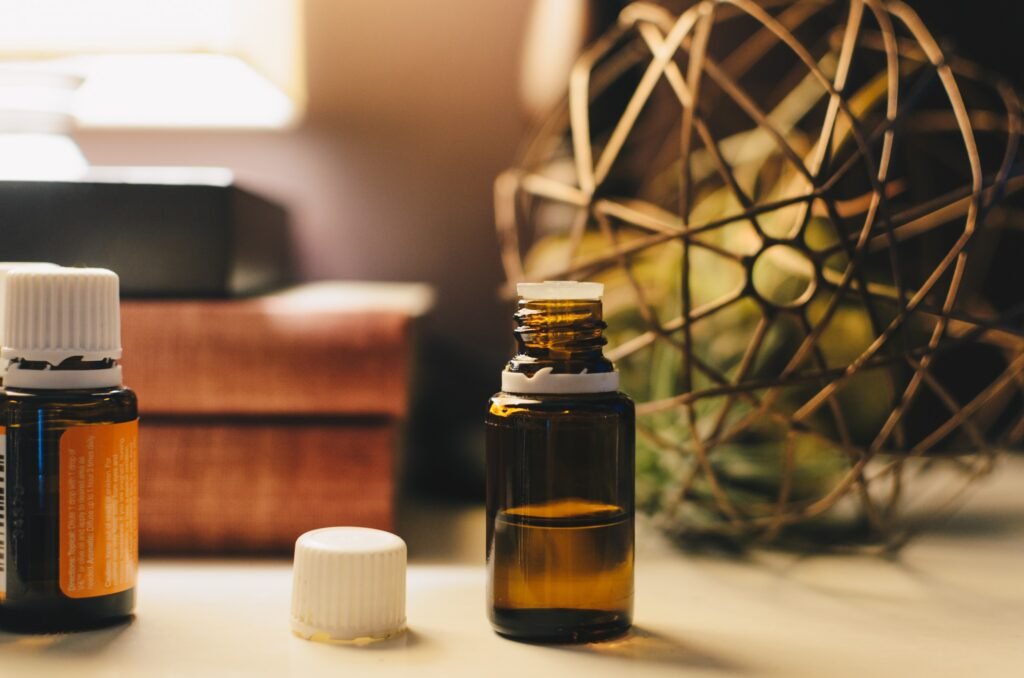Are you feeling overwhelmed by anxiety? Don’t worry, because there are coping strategies that can help you navigate through those difficult moments. In this article, we will explore effective techniques that can assist you in dealing with anxiety. By the end of this read, you will have a toolkit of practical tips and resources to support your mental well-being. So, take a deep breath and let’s explore the world of coping strategies together.

Understanding Anxiety
Anxiety is a common emotion that many people experience from time to time. It is a natural response to stress or danger and can vary in intensity. While some anxiety is normal and can even be helpful in certain situations, excessive or prolonged anxiety can be distressing and interfere with daily life.
Definition of Anxiety
Anxiety is often described as a feeling of unease, worry, or fear. It can be accompanied by physical symptoms such as a racing heart, shortness of breath, sweating, and trembling. Anxiety can manifest in different ways, including generalized anxiety disorder (GAD), panic disorder, social anxiety disorder, and specific phobias.
Types of Anxiety Disorders
Generalized Anxiety Disorder (GAD) is characterized by excessive and uncontrollable worry about everyday events or activities. Panic disorder is characterized by recurring panic attacks, which are sudden and intense surges of fear accompanied by physical symptoms such as a pounding heart, chest pain, and dizziness. Social anxiety disorder is an intense fear of social situations and can cause individuals to avoid social interactions. Specific phobias involve excessive fear and avoidance of specific objects or situations, such as heights, spiders, or flying.
Seeking Professional Help
When anxiety starts to interfere with your daily life and becomes overwhelming, seeking professional assistance is crucial. Mental health professionals, such as therapists and counselors, can provide guidance, support, and effective treatment options to manage anxiety.
Importance of Professional Assistance
Professional assistance is important because trained therapists can help identify the root causes of anxiety and develop personalized treatment plans. They can provide a safe space for individuals to express their fears, concerns, and emotions without judgment. Therapists can also teach coping skills and relaxation techniques that can alleviate anxiety symptoms and improve overall well-being.
Options for Therapy
There are different types of therapy that can be beneficial for anxiety, including cognitive-behavioral therapy (CBT), which focuses on changing negative thought patterns and behaviors. CBT helps individuals identify and challenge irrational thoughts and develop healthier coping strategies. Other therapeutic approaches, such as exposure therapy, can help individuals confront and overcome specific fears or phobias. Additionally, medication may be prescribed by a healthcare professional to manage severe anxiety symptoms when necessary.
Self-Help Coping Strategies
In addition to seeking professional help, there are various self-help coping strategies that can assist in managing anxiety. These techniques can be practiced independently or alongside therapy to provide additional support and relief.
Relaxation Techniques
Relaxation techniques are effective ways to calm the mind and relax the body, reducing anxiety symptoms. Deep breathing exercises, progressive muscle relaxation, and mindfulness and meditation are all powerful relaxation techniques that can help you regain control during anxious moments.
Deep Breathing Exercises
Deep breathing exercises involve taking slow, deep breaths to activate the body’s natural relaxation response. By focusing on your breath and inhaling deeply through your nose, holding for a few seconds, and exhaling slowly through your mouth, you can decrease anxiety and promote a sense of calm.
Progressive Muscle Relaxation
Progressive muscle relaxation involves tensing and releasing individual muscle groups to help the body and mind relax. By systematically working through different muscle groups and consciously tensing and releasing them, you can release built-up tension and experience a deep state of relaxation.
Mindfulness and Meditation
Mindfulness and meditation practices involve intentionally focusing your attention on the present moment. By quieting the mind and focusing on your breath or a specific point of focus, you can reduce anxious thoughts and promote a sense of inner peace. Regular practice of mindfulness and meditation can help train the mind to stay present and lessen anxiety in the long term.
Physical Activities
Engaging in regular physical activities can have a significant impact on anxiety levels by reducing stress and promoting a sense of well-being. Exercise, yoga, pilates, and tai chi are all physical activities that have been shown to be beneficial for managing anxiety.
Exercise and Its Benefits
Exercise releases endorphins, which are natural chemicals in the body that promote feelings of happiness and well-being. Engaging in aerobic exercises such as running, swimming, or cycling can boost your mood, reduce stress hormones, and help alleviate anxiety symptoms. Aim for at least 30 minutes of moderate-intensity exercise most days of the week to experience these benefits.
Yoga and Pilates
Yoga and pilates combine physical movement with deep breathing and mindfulness, making them excellent practices for reducing anxiety. These mind-body exercises promote relaxation, increase body awareness, and improve flexibility and strength. The focus on breath and gentle movements can calm the mind and release built-up tension.
Tai Chi
Tai chi is a gentle and slow-moving martial art that originated in ancient China. It involves a series of flowing movements and deep breathing, which promote relaxation, balance, and improved mental well-being. Practicing tai chi can help reduce anxiety by enhancing body-mind connections and fostering a sense of inner peace.

Healthy Lifestyle Choices
Maintaining a healthy lifestyle can play a significant role in managing anxiety. By adopting certain lifestyle choices, you can support your mental and emotional well-being, which can contribute to reducing anxiety symptoms.
Balanced Diet
Eating a balanced diet that includes a variety of nutrient-dense foods can help support your overall well-being, including your mental health. Including foods rich in omega-3 fatty acids, such as fatty fish, walnuts, and flaxseeds, can have a positive impact on brain health and reduce anxiety symptoms. Additionally, reducing processed foods, sugar, and caffeine intake can help regulate mood and minimize anxiety triggers.
Adequate Sleep
Getting enough quality sleep is essential for managing anxiety. Lack of sleep can increase feelings of irritability, stress, and anxiety. Establishing a consistent sleep routine, creating a comfortable sleep environment, and practicing relaxation techniques before bed can all contribute to better sleep quality and reduced anxiety.
Reducing Alcohol and Caffeine Intake
While alcohol and caffeine may initially provide a temporary sense of relaxation or energy, they can ultimately exacerbate anxiety symptoms. Alcohol is a depressant that can interfere with sleep quality and increase feelings of anxiety the next day. Caffeine, found in coffee, tea, and energy drinks, can stimulate the nervous system and trigger anxious thoughts and physical symptoms. Reducing or moderating your intake of alcohol and caffeine can have a positive impact on anxiety levels.
Managing Stress
Stress is a common trigger for anxiety, so managing and reducing stress can significantly minimize anxiety symptoms. By incorporating effective stress management techniques into your daily routine, you can better cope with anxiety-inducing situations.
Identifying Stressors
Identifying the specific factors that cause stress in your life is an important first step in managing anxiety. Take some time to reflect on the situations, people, or events that trigger feelings of stress or anxiety. By understanding your stressors, you can develop strategies to either avoid or effectively cope with them.
Time Management
Effective time management can help reduce stress and create a sense of control over your life. Prioritize tasks, break larger tasks into manageable steps, and delegate when possible. By managing your time effectively, you can minimize overwhelming feelings and create a more balanced lifestyle.
Setting Realistic Goals
Setting realistic goals and expectations for yourself can alleviate unnecessary stress and anxiety. Break larger goals into smaller, actionable steps, and celebrate your progress along the way. By setting achievable goals, you can maintain motivation, reduce stress, and improve overall well-being.

Positive Thinking
Positive thinking involves intentionally focusing on positive aspects of life and challenging negative thoughts. By adopting a positive mindset, you can reframe anxious thoughts and cultivate a more optimistic outlook.
Challenging Negative Thoughts
Anxiety often involves distorted thinking patterns, and negative thoughts can perpetuate anxious feelings. Practice challenging negative thoughts by questioning their validity and replacing them with more balanced or positive thoughts. Reflect on evidence that contradicts negative beliefs and focus on realistic and positive perspectives.
Affirmations and Mantras
Affirmations and mantras are positive statements or phrases that you repeat to yourself to reinforce positive beliefs and counteract anxious thoughts. Create a list of uplifting affirmations relevant to your personal goals and values and repeat them daily. By focusing on positive affirmations, you can shift your mindset and reduce anxiety.
Gratitude Journaling
Gratitude journaling involves regularly writing down things you are grateful for in your life. By shifting your focus to the positive aspects of your day, you can cultivate a sense of gratitude and appreciation. This practice can help counteract anxious thoughts and promote a more positive outlook.
Social Support
Connecting with others and seeking social support can be instrumental in managing anxiety. Talking to someone you trust, participating in support groups, and engaging in online communities can provide support, validation, and a sense of belonging.
Talking to a Trusted Individual
Having someone you trust to talk to about your anxieties and fears can help provide perspective and emotional support. Reach out to a close friend, family member, or therapist and share your thoughts and feelings. Simply vocalizing your concerns can often alleviate some of the anxiety associated with them.
Joining Support Groups
Joining a support group can provide a valuable opportunity to connect with others who are going through similar experiences. Sharing experiences, tips, and coping strategies with individuals who understand can foster a sense of community and reduce feelings of isolation. Many support groups are available both in-person and online, making it easier to find one that suits your needs.
Online Communities
Online communities and forums dedicated to anxiety and mental health can offer a platform for individuals to share their stories, seek advice, and find support. Engaging in online discussions and reading others’ experiences can help you feel less alone in your journey and provide valuable insights and coping strategies.
Relaxation Techniques
In addition to deep breathing exercises and progressive muscle relaxation, other relaxation techniques can further promote a sense of calm and alleviate anxiety symptoms.
Listening to Music
Listening to soothing music that you enjoy can help relax your mind and distract you from anxious thoughts. Slow, instrumental, or nature sounds have been found to be particularly calming. Create a playlist of your favorite relaxing songs and listen to them when you are feeling anxious.
Guided Imagery
Guided imagery is a technique that involves visualizing calming and peaceful scenes in your mind. Close your eyes, take deep breaths, and imagine yourself in a tranquil setting, such as a beach or a peaceful forest. Allow all your senses to engage with the visualization, and let the imagery bring about a sense of relaxation and tranquility.
Aromatherapy
Aromatherapy involves using essential oils to promote relaxation and reduce anxiety. Lavender, chamomile, bergamot, and ylang-ylang are commonly used essential oils for anxiety. Diffuse the oils in your home, add a few drops to a warm bath, or apply them topically (diluted with a carrier oil) to experience their calming effects.
Alternative Therapies
In addition to traditional therapy and self-help strategies, alternative therapies can be explored to complement anxiety management.
Acupuncture
Acupuncture involves the insertion of thin needles into specific points on the body to restore balance and promote healing. It is believed to stimulate the release of endorphins and other neurotransmitters that can alleviate anxiety symptoms. Consult with a qualified acupuncturist to explore this complementary therapy option.
Herbal Supplements
Certain herbal supplements, such as chamomile, lavender, and passionflower, are known for their calming properties and can help reduce anxiety symptoms. However, it is important to consult with a healthcare professional before incorporating any new supplements into your routine, as they may interact with other medications or have contraindications.
Massage Therapy
Massage therapy can help release tension in the body, promote relaxation, and reduce stress and anxiety. Whether it’s a full-body massage or a focused massage on specific areas of tension, the soothing touch and rhythmic movements can provide relief from physical and mental stress.
In conclusion, managing anxiety requires a multifaceted approach that combines professional help, self-help coping strategies, physical activities, healthy lifestyle choices, stress management techniques, positive thinking, social support, relaxation techniques, and, if desired, alternative therapies. By exploring and implementing these strategies, you can take control of your anxiety and improve your overall well-being. Remember, there is no one-size-fits-all approach, so it may take some trial and error to find the strategies that work best for you. Be patient and kind to yourself as you embark on this journey towards managing anxiety and regaining control of your life.
